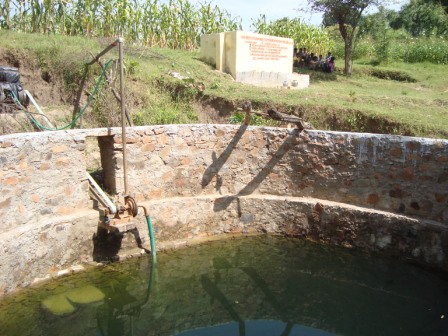
Project Summary
On an average, this region of Rajasthan faces droughts every three to four years. While the onset and distribution of monsoon is highly erratic, both across regions within districts and across monsoon months, further creating drought like situations intermittently. The key objectives of this project are to increase awareness on clean drinking water, sanitation, hygiene, and groundwater management; to enhance the accessibility to clean drinking water by reviving existing and constructing new systems; to support households to create eco-sanitation facilities; to facilitate a community-based integrated water and sanitation system; to impart technical and management skills to women and village development officials; to develop a perspective of groundwater as a common property, to create a cadre of local youth to repair and manage infrastructure and to promote behavioural change
Outputs
- Awareness programmes
- Collecting information on water handling practices, hygiene practices, the prevalence of water-borne diseases, and the willingness for behavioural change
- Mapping drinking water sources
- Identifying 2 households from each settlement interested in demonstrating of eco-sanitation toilets
- Conduct exposure visits for women, village representatives, members of village institutions, staff members
- Conduct 3 trainings of village institution members to build technical skills
- Repair, treat, and revive hand-pumps
- Construct open-well-based clean water supply systems in 10 settlements
- Provide 200 bio-sand filters to households in 2 settlements
- Conduct 6 operation and maintenance trainings
- Assist village institution to establish norms for system management, including benefit distribution, user fees, and conflict resolution
- Design eco-sanitation toilets with regard to the communities’ needs
- Support demonstration toilet construction
- Help 18 households from each settlement apply for toilet grants from the government
- Conduct 3 trainings for women and village institution members to build technical skills
- Follow-up meetings on the eco-sanitation toilets
- Conduct a hydrogeological study on each settlement and map the groundwater, studying water use and agricultural patterns
- Organize 3 workshops to prepare a groundwater management strategy and establish monitoring systems
- Select 18 youths to become experts in village water and sanitation infrastructure
- Train these youth and involve them in the technical work
- Prepare booklets and posters in the local language to impart information







 Seva Mandir
Seva Mandir